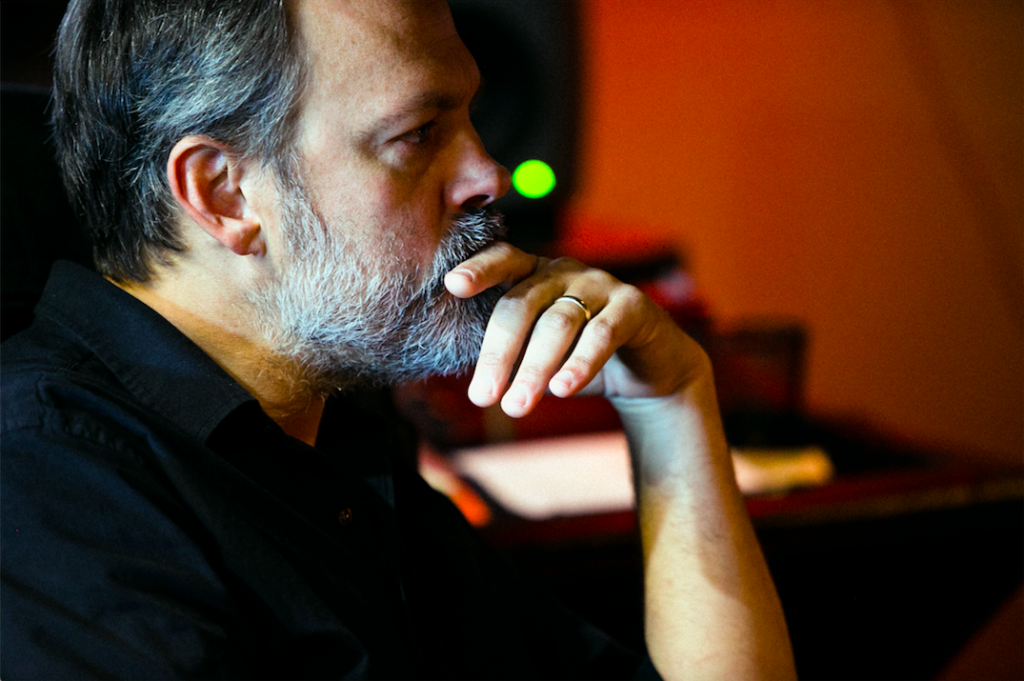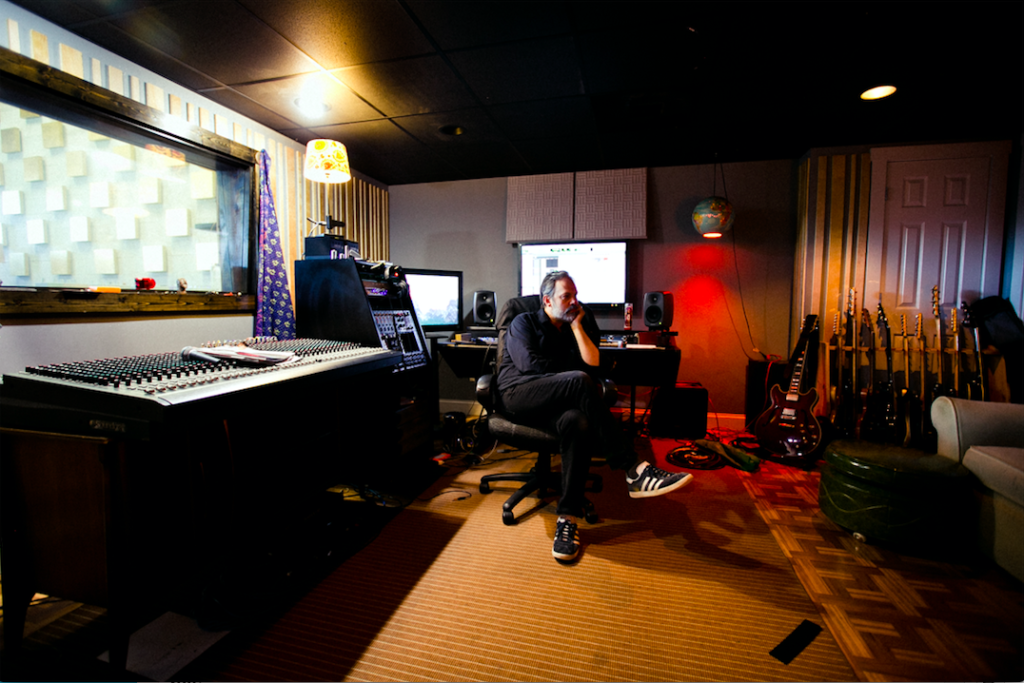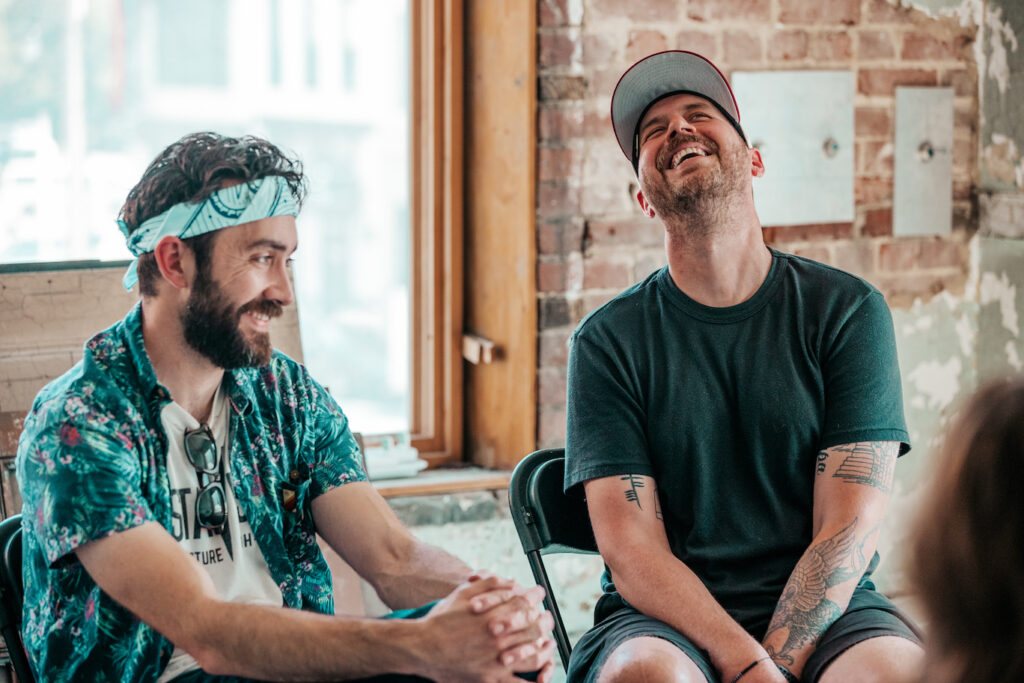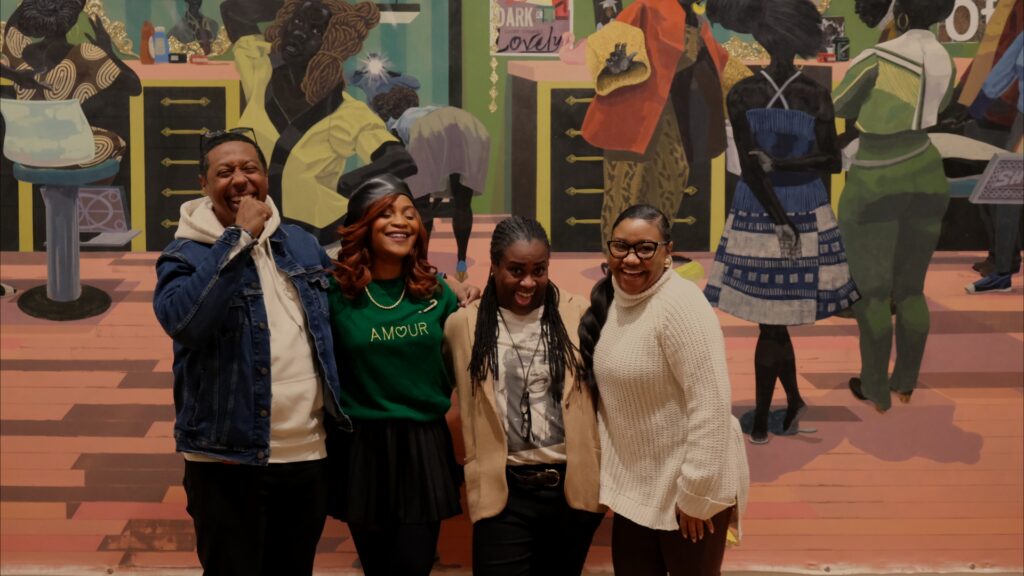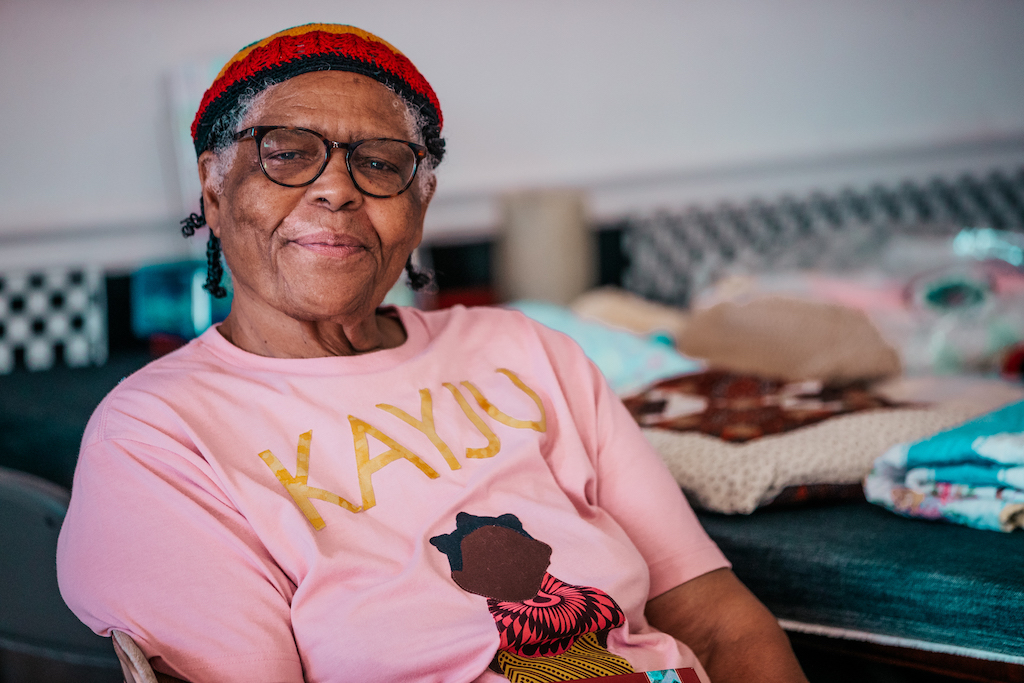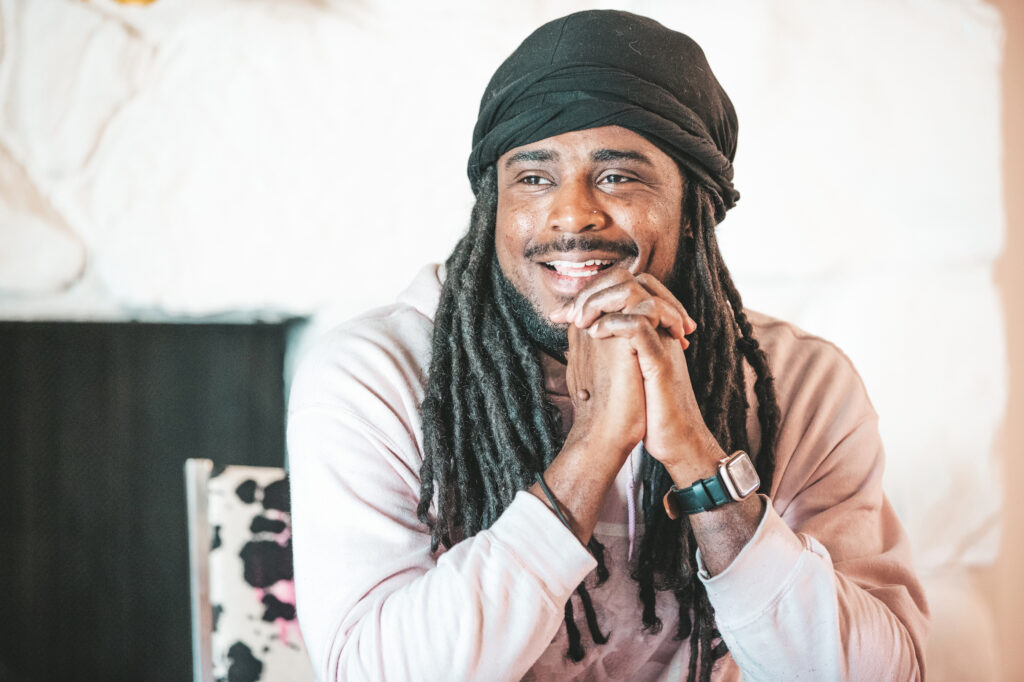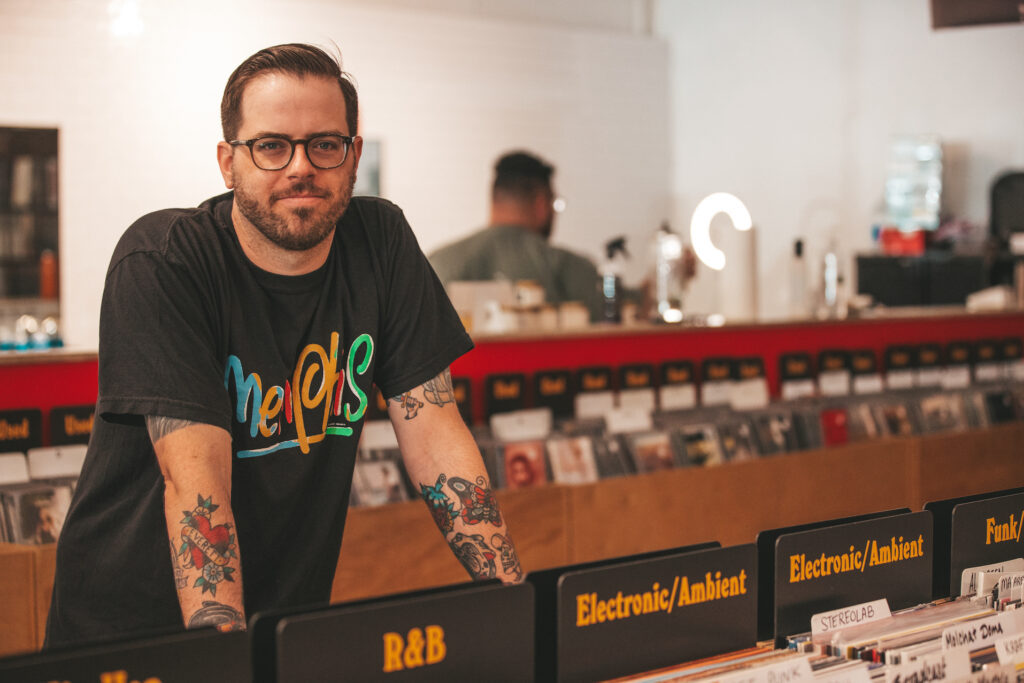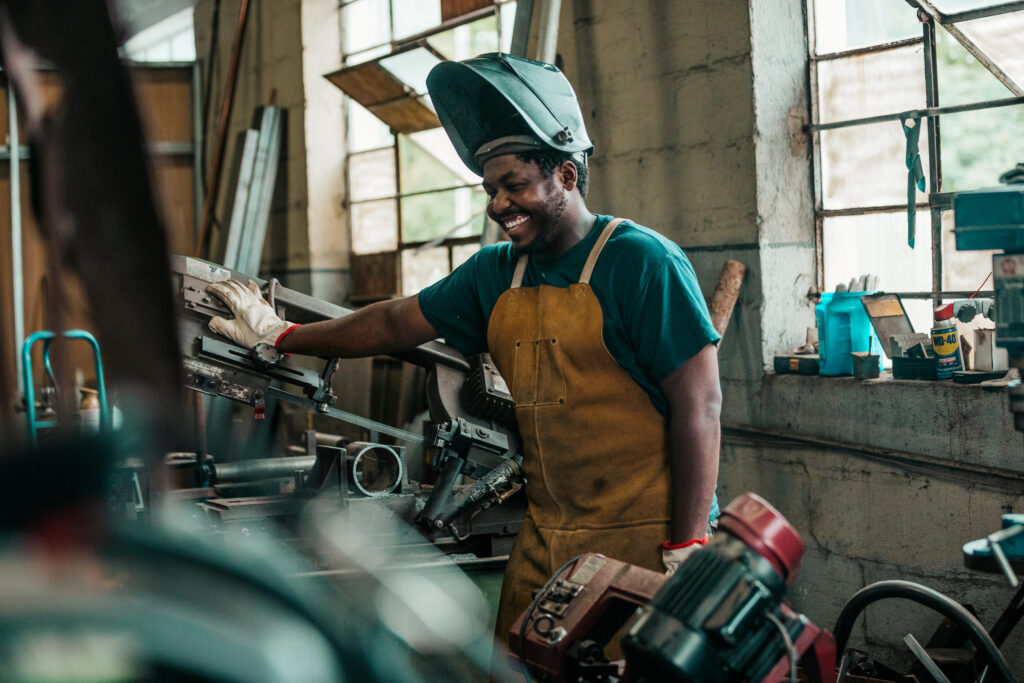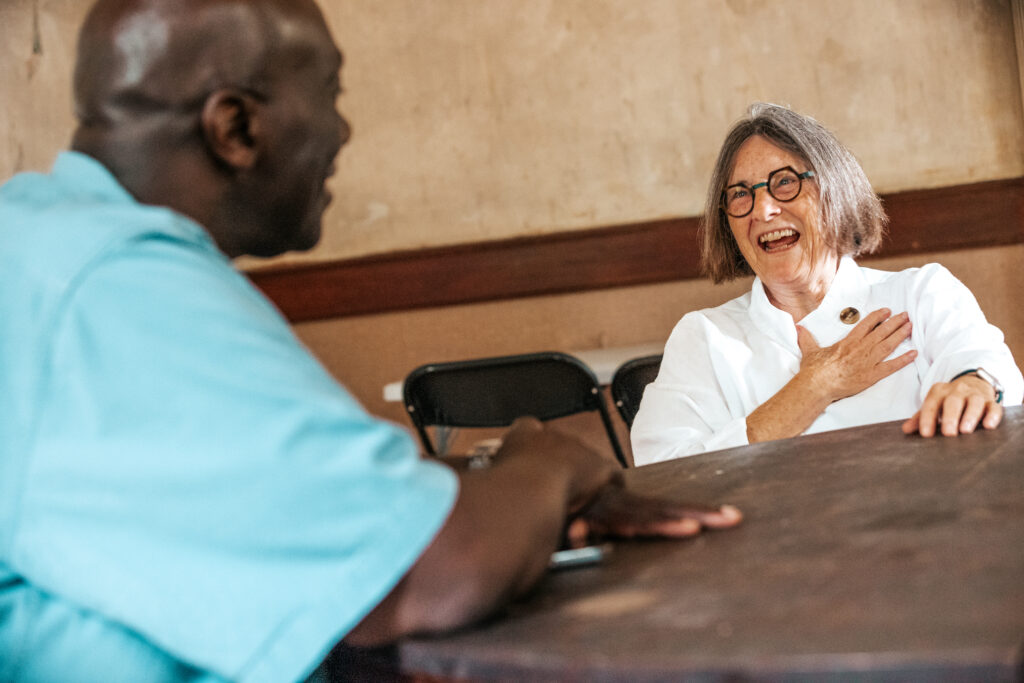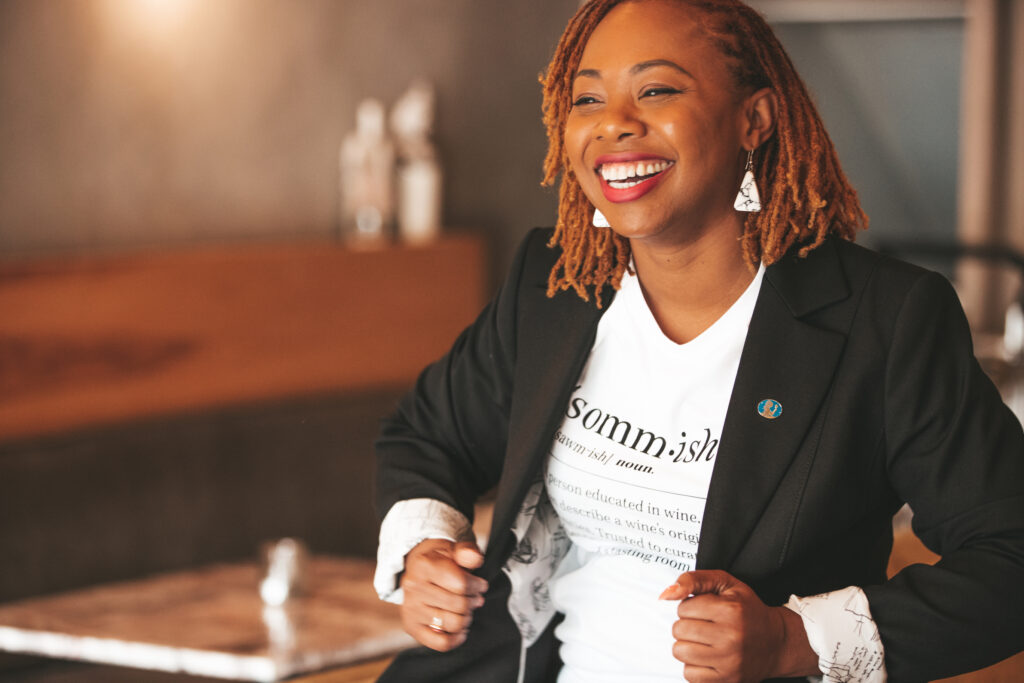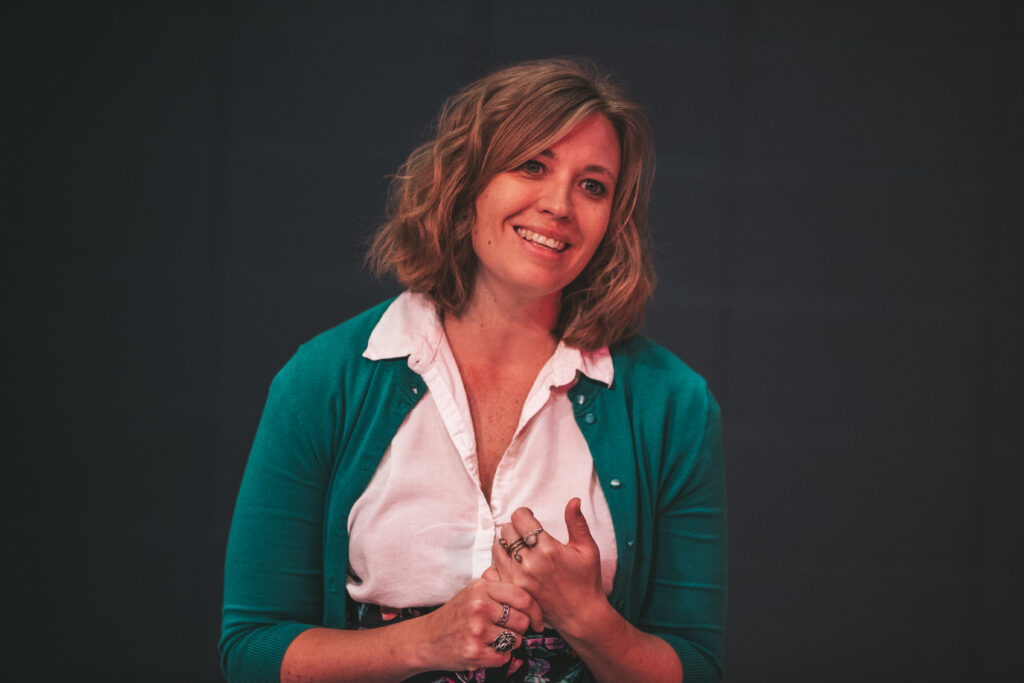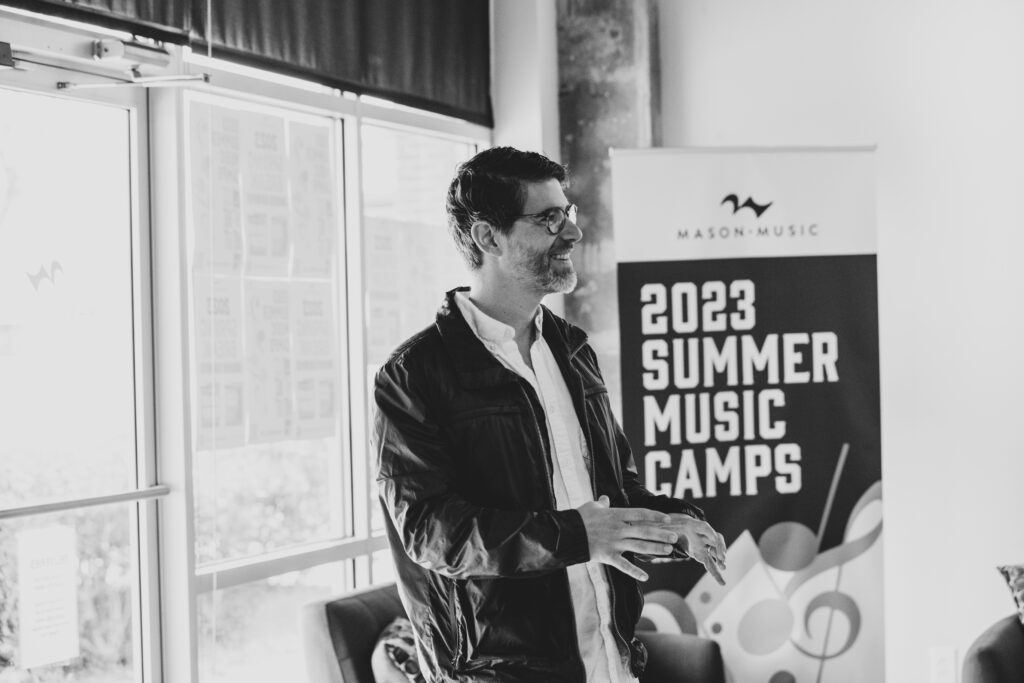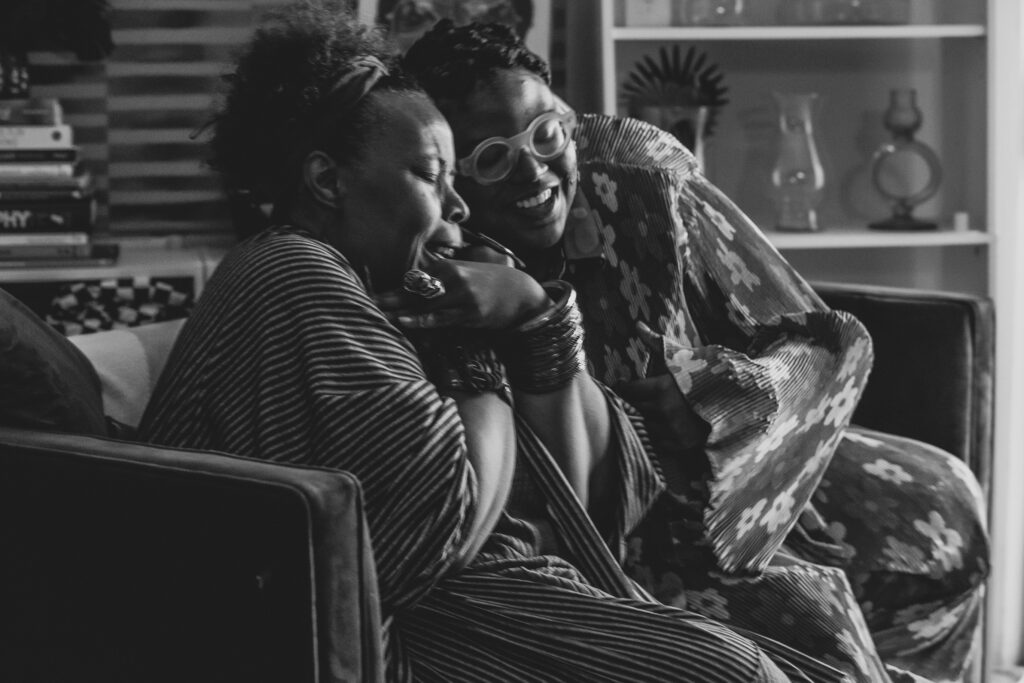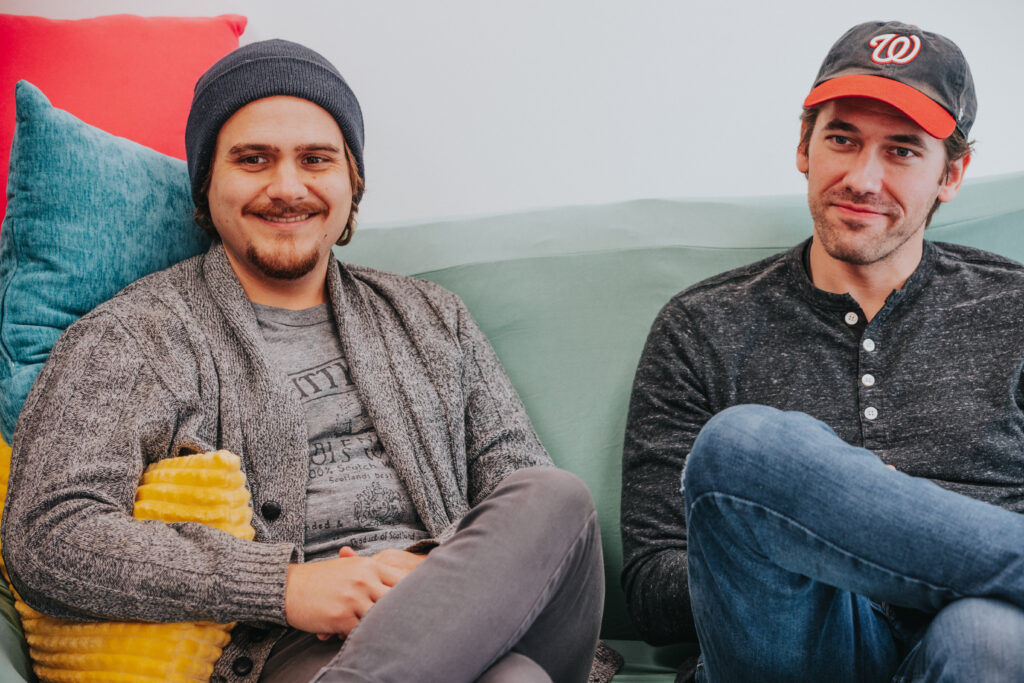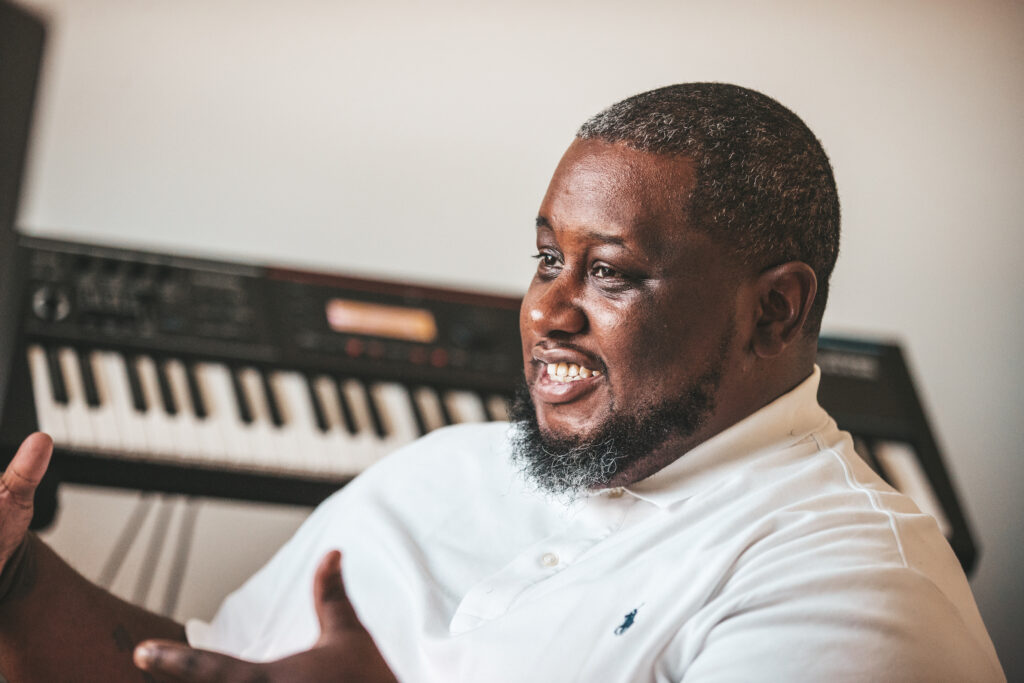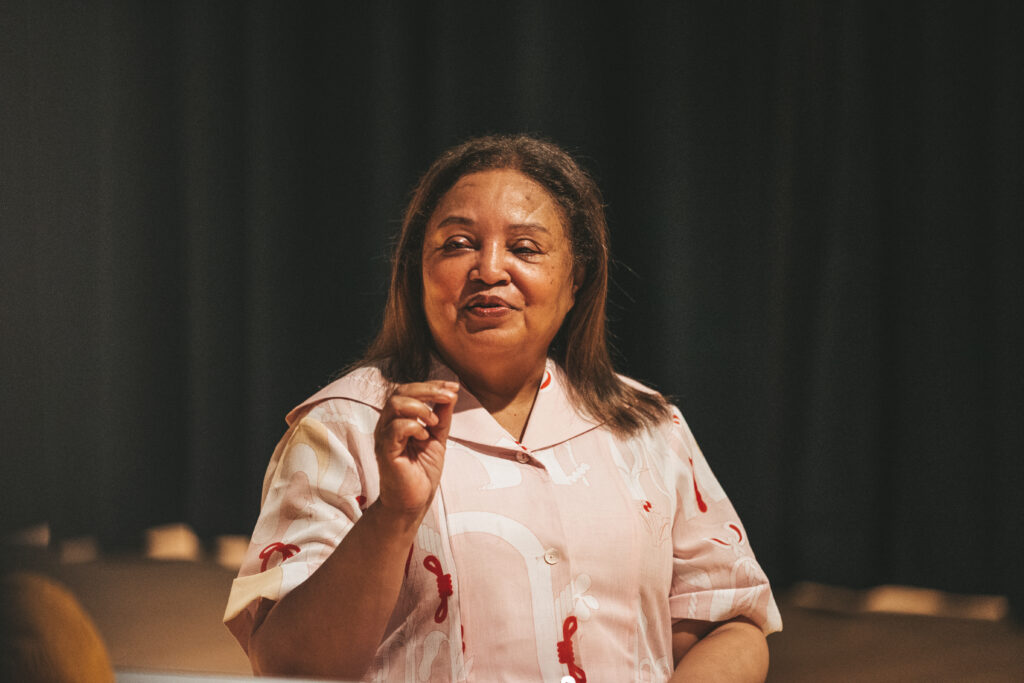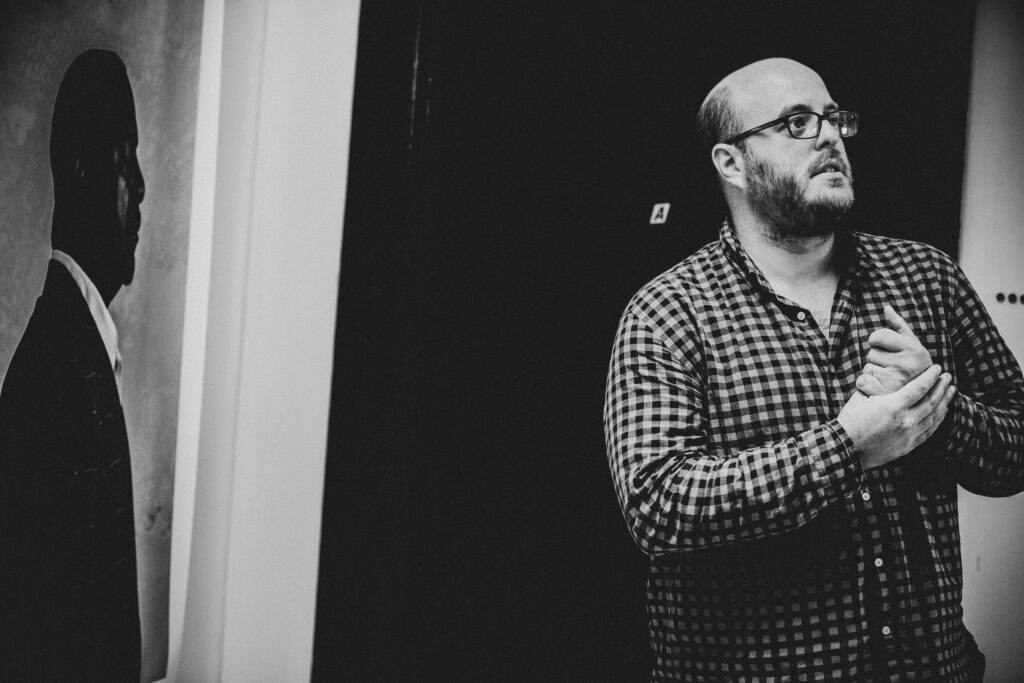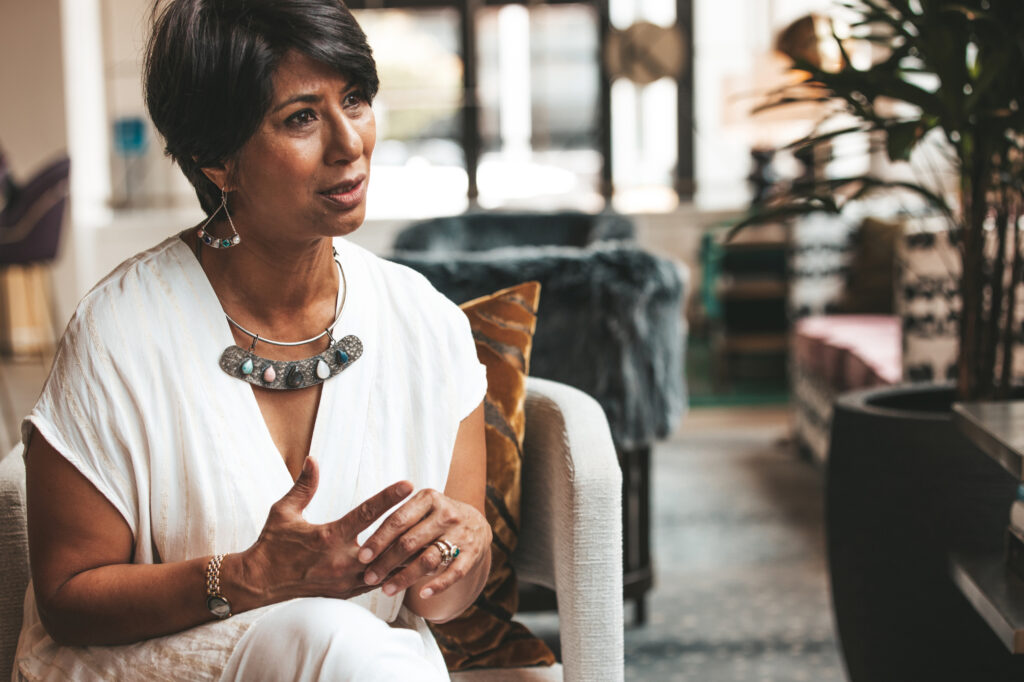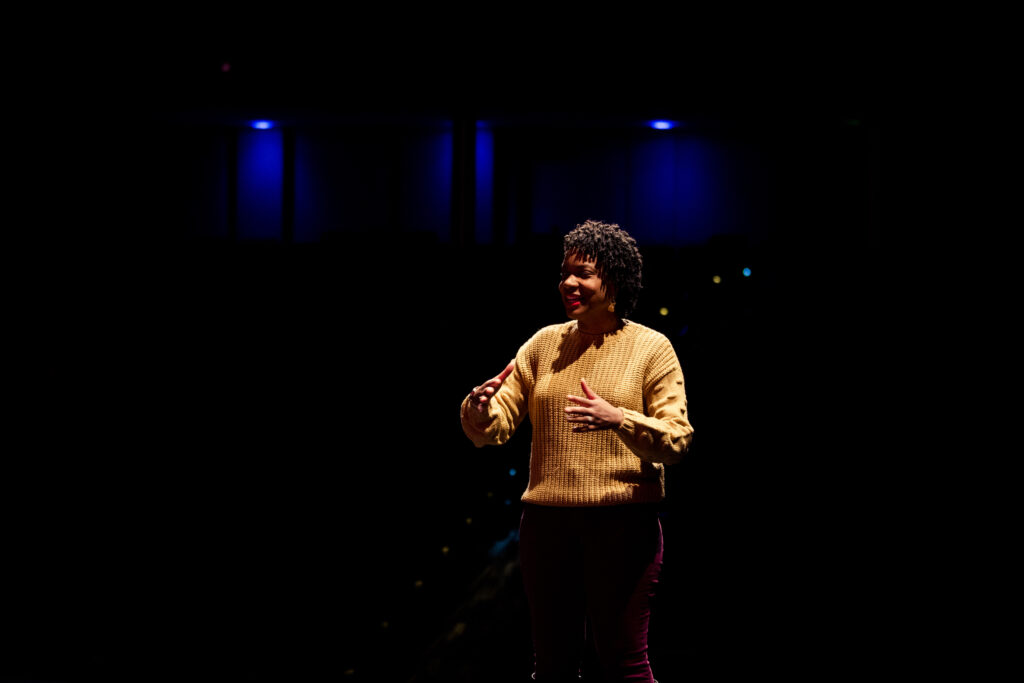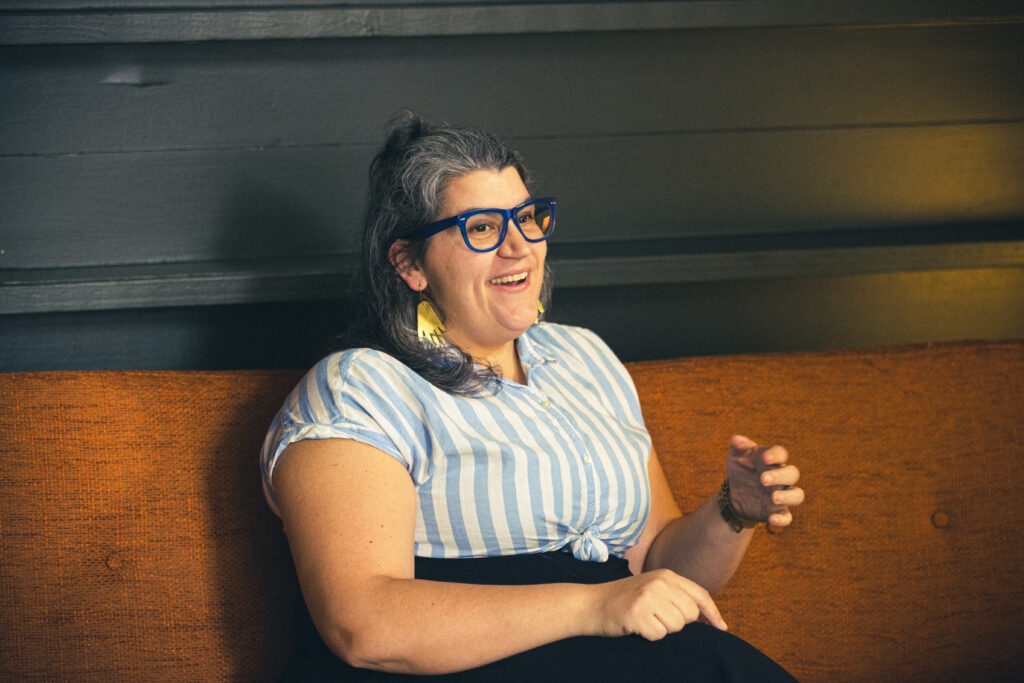Interview by Tonia Trotter
Photos by Ambre Amari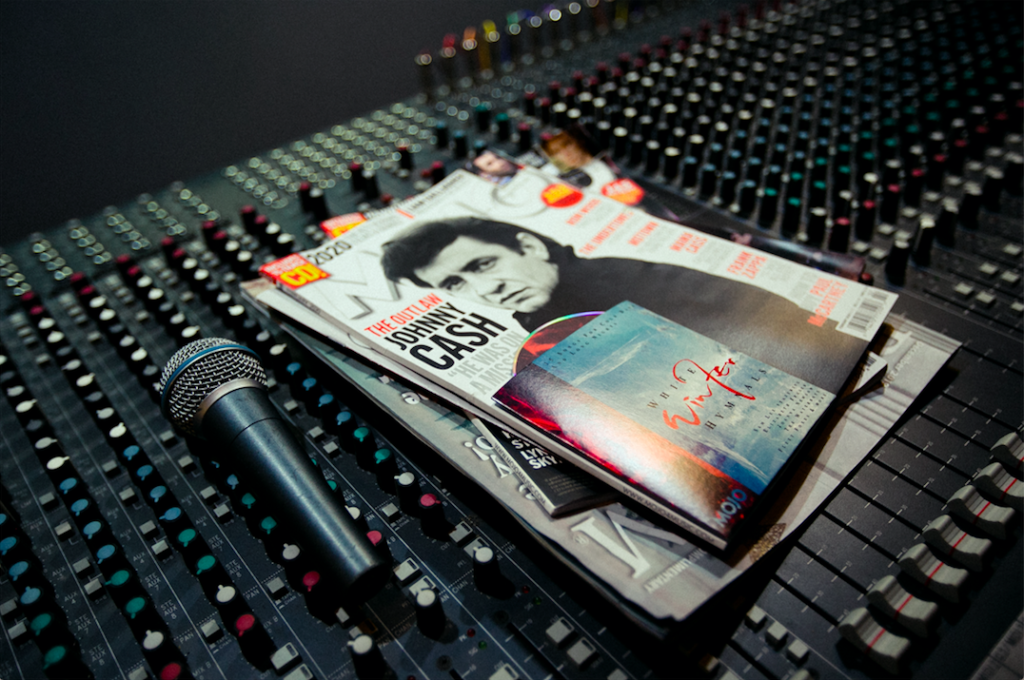
Tucked in a quiet corner of Homewood is Ol’ Elegante Studio, the recording studio and creative incubator of music producer Les Nuby. The Birmingham native was the drummer for the band Verbena — touring with the Foo Fighters, opening for R.E.M., and playing The Late Show with David Letterman — and is currently the guitarist for the Birmingham-based band Holiday Gunfire. With a career spanning nearly three decades, the veteran musician talks about his professional and personal evolution, coming back home, and beginning a new chapter with his first solo album Clouded, set for release this spring.
How did your early passion for music grow into a career?
I’ve always loved music. My mom has photos of me as a kid reading liner notes of records next to my Fisher-Price record player. I didn’t know then what all those things were, but what I did understand were that there were all these people involved in putting an album together. Growing up, I wanted to be a rock star and play guitar in a band that was wildly successful. It would be just like MTV. That was in the 80s, and the high-water mark for that was Van Halen. I thought, “I don’t look anything like these people.” I was living in Alabama — not New York or Los Angeles or Chicago where everything was happening. But wanting to play music with other people and getting everyone together was something I was good at. I was the one with the PA system, so I could motivate everyone else. In middle school, I got a four-track and started figuring out how to record and layer tracks. I didn’t really think of it as a career path; it was just my way of documenting our sound and our progress. It was practical, and someone needed to be able to do it. I wasn’t necessarily good at it, but I was the guy with the stuff.In my mid-twenties, after I had been playing guitar and drums with Verbena, I realized that I could be playing drums with other bands too. The more I was able to play with different people and record with them, the more I was able to feel confident about my versatility.
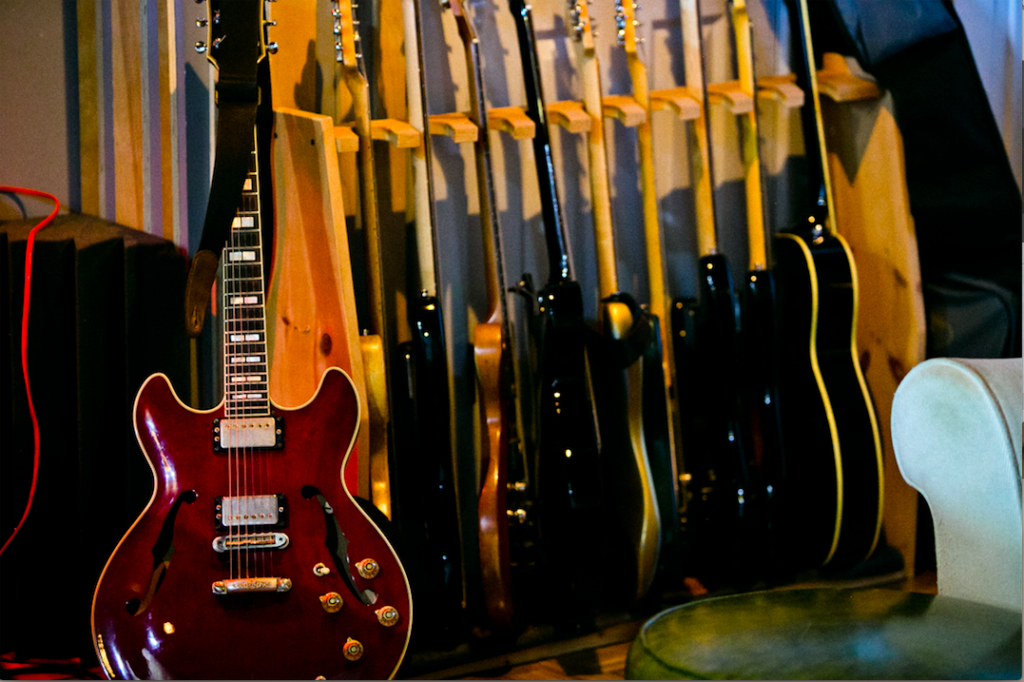 You spent a lot of time as a touring musician and lived in New York and Los Angeles before returning to Birmingham. What was it like to come back and begin a new chapter? Were there challenges?
You spent a lot of time as a touring musician and lived in New York and Los Angeles before returning to Birmingham. What was it like to come back and begin a new chapter? Were there challenges?
I lived in LA cumulatively for about ten years doing session work. In 2007, I knew that I wanted to come home. LA was super competitive and cutthroat, and I missed my family, my friends, and the feeling of being a part of something more collaborative. I needed a job and felt like there was this void in Birmingham where I could carve out a niche. I knew that I could record bands. So I started a new band in order to begin recording. In hindsight, I was waiting for someone to come to me and say, “You’re a record producer. You’re an engineer and producer.” Eventually, it hit me; I have to be the one to say that. I need to tell myself and others that’s what I do. Once I was able to do that, opportunities began to present themselves.
How has your experience of working in Birmingham changed over your career? How has Birmingham evolved when it comes to the music scene?
I think Birmingham is the ideal place I could’ve been to do this — then and now. There are so many talented people from here and working here. It used to be that you worked hard and honed your talent here and then left for a bigger market. Birmingham was inexpensive, so you could come back when you needed to, and you were still relatively close to all these other cities where the work was. What I’ve noticed now, for example with St. Paul and the Broken Bones, is that the Birmingham music scene is always seemingly ascending. We haven’t plateaued, we haven’t exploded. But there are always interesting, creative things happening here. Documenting those things is important. And it’s fun! Birmingham is growing, and that means that we are getting cooler stuff. But I don’t want to be one of those towns where we are only building attractions for tourists. I want to create something that is part of the culture of our hometown and the people who already live here. I want to make Birmingham better for Birminghamians, not just the people passing through. We are unique. A lot of cities that have experienced recent growth did so at the expense of their character. I’ve gotten to watch over my life, over my career, this incredible evolution of Birmingham that feels authentic.
What continues to motivate you?
The joy I get out of facilitating creativity is immeasurable. I love having the chance to motivate others — to see something special in them that they don’t necessarily see or believe about themselves. So many artists I work with are incredibly self-critical, and they are waiting to impress themselves — which never really happens and doesn’t necessarily get anything done. All the greatest records in history have one thing in common: they got done. I help determine where the finish line is. Sometimes it’s like therapy, and sometimes it’s an argument. But both friction and communication usually end up creating something stronger. It feels so rewarding to be a part of that process and grow this little seed of creativity and truth into something better together.
Overcoming personal hurdles can be the catalyst for positive change in our lives. Most of our life lessons are learned through challenges, and many artists have been open about their struggles and how it has affected them. You’ve been sober for twenty-two years. What effect has this had on you?
For me, my drinking career was getting in the way of my music career. People would ask, “What are you doing tonight?” I always knew I was drinking, I just didn’t know where. And that was really sad. I didn’t do a program; I just stopped. Once I stopped drinking, I got better and it showed. I was a better drummer, a better conversationalist, better in relationships, and healthier mentally and physically. Seeing and feeling that improvement in myself and having others acknowledge it too made a difference. I had friends tell me, “We forgot that you were funny.”You don’t have to be sincere to be successful, but people are hungry for honesty. I think to be a good songwriter, you absolutely have to be honest in where you are. The truth is bad things happen sometimes. We have family issues. Relationships fail. We worry about who we are — to ourselves and others — and feeling those things is important. Writing about it is important. Drinking was a crutch that wasn’t working, and it provides a trap door to being a jerk. When you stop drinking, that excuse isn’t there. You aren’t the victim of having too much to drink; you’re just a jerk. You have to own your decisions.
In addition to your collaborations with the artists you produce, your own work has been recognized recently. Your band Holiday Gunfire was featured on the HBO show Shameless, and you have your first solo record coming out this spring. As a veteran musician who is known for his creative partnerships, how did this solo project come about? How is it different?
Throughout my career, I’ve written but have never been the lead writer for any band. At the end of 2016 and early 2017, I had a major life shift. I began to write a lot. It just poured out of me. Holiday Gunfire – comprised of some buddies I’d been friends with for three decades — ended up using a lot of what I had written, but I still had a lot that felt strong and personal. I started to consider recording a solo album. It feels scary. I have always felt comfy supporting a band. Not only does it feel good to be a part of something, I never have to feel the full pressure of being the only person to blame if it sucks. Putting myself out there with my words, my music, and my singular vision is definitely a personal hurdle.

